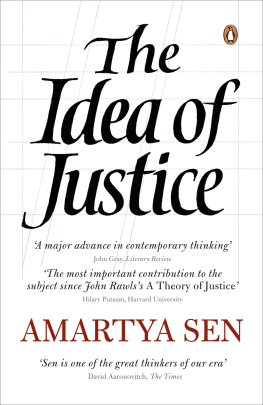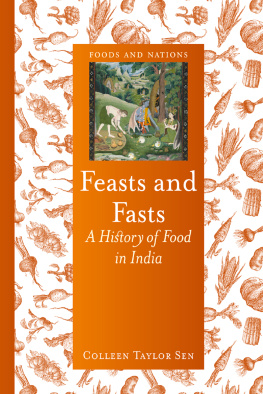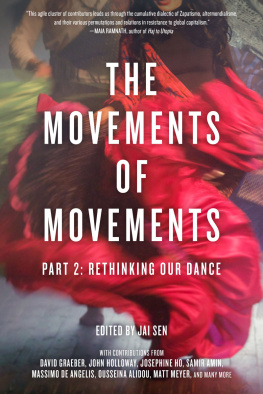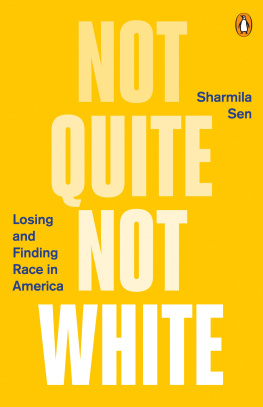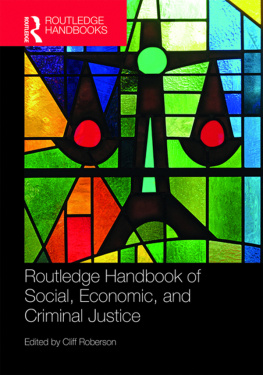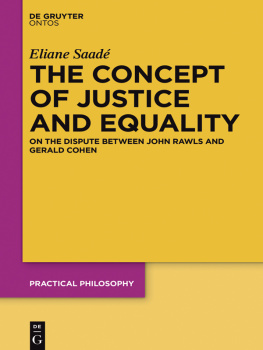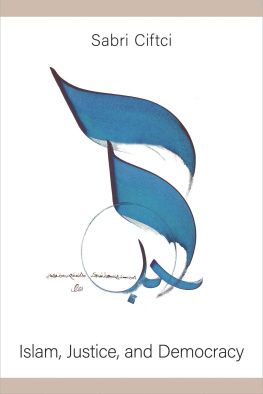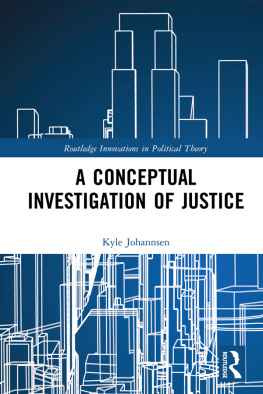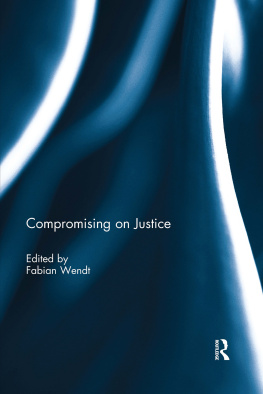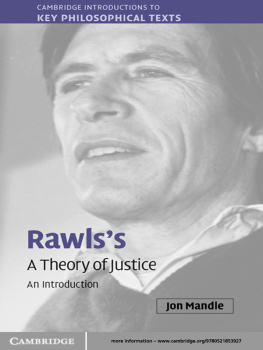AMARTYA SEN
The Idea of Justice
PENGUIN BOOKS
In memory of
John Rawls
PENGUIN BOOKS
Published by the Penguin Group
Penguin Books Ltd, 80 Strand, London WC2R 0RL , England
Penguin Group (USA), Inc., 375 Hudson Street, New York, New York 10014, USA
Penguin Group (Canada), 90 Eglinton Avenue East, Suite 700, Toronto, Ontario, Canada M4P 2Y3 (a division of Pearson Penguin Canada Inc.)
Penguin Ireland, 25 St Stephens Green, Dublin 2, Ireland (a division of Penguin Books Ltd)
Penguin Group (Australia), 250 Camberwell Road, Camberwell, Victoria 3124, Australia
(a division of Pearson Australia Group Pty Ltd)
Penguin Books India Pvt Ltd, 11 Community Centre, Panchsheel Park, New Delhi 110 017, India
Penguin Group (NZ), 67 Apollo Drive, Rosedale, North Shore 0632, New Zealand
(a division of Pearson New Zealand Ltd)
Penguin Books (South Africa) (Pty) Ltd, 24 Sturdee Avenue, Rosebank, Johannesburg 2196, South Africa
Penguin Books Ltd, Registered Offices: 80 Strand, London WC2R 0RL , England
www.penguin.com
First published by Allen Lane 2009
Published in Penguin Books 2010
Copyright Amartya Sen, 2009
The moral right of the author has been asserted
All rights reserved
Without limiting the rights under copyright reserved above, no part of this publication may be reproduced, stored in or introduced into a retrieval system, or transmitted, in any form or by any means (electronic, mechanical, photocopying, recording or otherwise), without the prior written permission of both the copyright owner and the above publisher of this book
A CIP catalogue record for this book is available from the British Library
ISBN: 978-0-14-196948-0
PENGUIN BOOKS
The Idea of Justice
The Idea of Justice is a humane and powerfully argued work of tremendous scope written in an accessible style, the book is leavened throughout by historical and literary allusions, often drawn from non-Western sources, and by frequent autobiographical and anecdotal touches The Idea of Justice is a marvellously sane and insightful work that deserves to have a deep and wide-ranging influence on how moral and political philosophy are practised John Tasioulas, The Times Literary Supplement
Polymathic brilliance among scholars is now generally agreed to be a thing of the past. The advance of knowledge means that providing intellectual leadership in economics, political theory and philosophy, as John Stuart Mill did, is not possible. Academics need to pick a subject and burrow into it as deeply as possible. But someone forgot to tell all this to Amartya Sen. Richard Reeves, Sunday Times
In this intricate, endlessly thought-provoking book, Sen brings the full force of his formidable mind and his moral sense to show how specific questions must be analysed in terms of justice. Sen is the most sophisticated intellectual campaigner of our times his arguments have shaped not just academic disciplines but the policies of governments and global institutions like the World Bank Sunil Khilnani, Financial Times
Sens whole book is a cornucopia of commonsense humane advice combined with analytical insight, and far wiser than those thinkers who try to derive all their recommendations from one usually questionable overriding value Samuel Brittan, Financial Times
This is not only a splendid book thoughtful, scholarly and well written, important in ideas I think it is going to be a very important book in many ways, including the politics of the next few years so do buy it Nicholas Stern, Telegraph
Sens range is amazing. His intimacy with the Hindu, Buddhist and Muslim cultures of India, which is beautifully woven into the book, gives him access to a far greater range of argumentation and reasoning than is common among philosophers who were educated exclusively in the Western analytical tradition. His knowledge of this vast cultural history and his profound respect for it, is an important source of Sens humility in recognizing the essential plurality of legitimate claims in rejecting any sort of monism in the life of the mind His work serves as an eloquent and humane testimony to the power of reason, which respects the multiplicity of voices and traditions. Reason seeks truth wherever it may be found, and so, like the author of this genuinely important book, it travels widely, and may find support near and far Moshe Halbertal, New Republic
This book is a distillation of so much that have come to be associated with Sen, and reading these new formulations is truly humbling. The intellectual clarity, the ability to create conceptually innovative distinctions, the broad range of historical learning from sources around the world, the powerful use of examples, but perhaps most importantly, the deep humanity and faith in a certain form of non-utopian progress all vividly shine through Pratap Bhanu Mehta, Outlook
ABOUT THE AUTHOR
Amartya Sen is Lamont University Professor, Professor of Philosophy and Professor of Economics, at Harvard University. He won the Nobel Prize in Economics in 1998 and was Master of Trinity College, Cambridge, 19982004. His many books include Development as Freedom, Rationality and Freedom, The Argumentative Indian and Identity and Violence.
Preface
In the little world in which children have their existence, says Pip in Charles Dickenss Great Expectations, there is nothing so finely perceived and finely felt, as injustice. I expect Pip is right: he vividly recollects after his humiliating encounter with Estella the capricious and violent coercion he suffered as a child at the hands of his own sister. But the strong perception of manifest injustice applies to adult human beings as well. What moves us, reasonably enough, is not the realization that the world falls short of being completely just which few of us expect but that there are clearly remediable injustices around us which we want to eliminate.
This is evident enough in our day-to-day life, with inequities or subjugations from which we may suffer and which we have good reason to resent, but it also applies to more widespread diagnoses of injustice in the wider world in which we live. It is fair to assume that Parisians would not have stormed the Bastille, Gandhi would not have challenged the empire on which the sun used not to set, Martin Luther King would not have fought white supremacy in the land of the free and the home of the brave, without their sense of manifest injustices that could be overcome. They were not trying to achieve a perfectly just world (even if there were any agreement on what that would be like), but they did want to remove clear injustices to the extent they could.
The identification of redressable injustice is not only what animates us to think about justice and injustice, it is also central, I argue in this book, to the theory of justice. In the investigation presented here, diagnosis of injustice will figure often enough as the starting point for But, it may be asked, if this is a reasonable starting point, why cant it also be a good ending point? What is the need to go beyond our sense of justice and injustice? Why must we have a theory of justice?
To understand the world is never a matter of simply recording our immediate perceptions. Understanding inescapably involves reasoning. We have to read what we feel and seem to see, and ask what those perceptions indicate and how we may take them into account without being overwhelmed by them. One issue relates to the reliability of our feelings and impressions. A sense of injustice could serve as a signal that moves us, but a signal does demand critical examination, and there has to be some scrutiny of the soundness of a conclusion based mainly on signals. Adam Smiths conviction of the importance of moral sentiments did not stop him from seeking a theory of moral sentiments, nor from insisting that a sense of wrong-doing be critically examined through reasoned scrutiny to see whether it can be the basis of a sustainable condemnation. A similar requirement of scrutiny applies to an inclination to praise someone or something.
Next page
